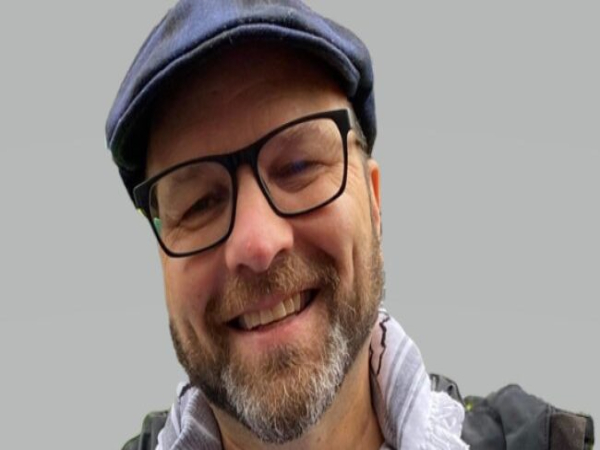Andrew Feinstein: Unveiling the Global Arms Trade and His Fight Against Corruption
Exploring the Life, Activism, and Impact of Andrew Feinstein on the Global Political Landscape

Andrew Feinstein is a renowned South African activist, author, and former politician, widely recognized for his in-depth investigations into the global arms trade and the corruption surrounding it. With his book The Shadow World: Inside the Global Arms Trade, Feinstein brought to light the intricate web of political corruption and its detrimental impact on international conflicts. His critical stance on the arms trade and his efforts to expose the dirty dealings of the global political elite have made him a respected figure in the world of investigative journalism and activism. From his time as a Member of Parliament to his campaigns in the UK, Feinstein continues to fight for transparency and human rights. His work serves as a stark reminder of the complexities of international politics and the consequences of unchecked corruption.
Introduction to Andrew Feinstein
Andrew Feinstein is a name that resonates strongly in the world of activism, politics, and investigative journalism. Born in South Africa, Feinstein’s work centers around exposing corruption within the global arms trade—a system that many argue fuels conflict, injustice, and inequality. His career, both as a politician and a campaigner, has been defined by his commitment to uncovering the truths that powerful interests often wish to keep hidden. Through his books, films, and political campaigns, Feinstein has become an influential voice advocating for greater accountability in global governance.
Early Life and Background
Andrew Feinstein was born in Cape Town, South Africa, into a family with a profound history that would shape his perspective on the world. His mother, a Holocaust survivor, and his father, a man of strong moral integrity, were both influences on his early life, instilling in him a sense of justice and the importance of standing up for what is right. Feinstein’s personal history and the lessons he learned growing up would later influence his political choices and his lifelong commitment to fighting corruption.
Feinstein’s academic background and early professional experiences gave him the foundation needed to dive into the political and investigative work that would define his career. However, it was his growing awareness of the corruption in South Africa that spurred him to take action.
Political Career and The ANC
Feinstein began his political career as a member of the African National Congress (ANC), South Africa’s ruling party post-apartheid. He served as a Member of Parliament (MP) for over seven years, during which he was deeply involved in the Finance Committee and the Public Accounts Committee. His work in these committees allowed him to witness firsthand the ways in which corruption undermined the democratic ideals that the ANC claimed to uphold.
However, Feinstein’s commitment to transparency and accountability ultimately led to his resignation in 2001. He was disillusioned by the ANC’s refusal to investigate the controversial arms deal that had taken place under its watch. This decision marked a pivotal moment in Feinstein’s career, signaling his unwavering stance against corruption, even at the cost of his political career.
The Shadow World and the Arms Trade
Feinstein’s investigation into the global arms trade began in earnest after his departure from politics. His book The Shadow World: Inside the Global Arms Trade exposed the vast network of political and corporate corruption that fuels the arms industry. The book examines how the arms trade contributes to global conflict, destabilizing regions and allowing unscrupulous actors to profit from human suffering.
In The Shadow World, Feinstein delves into the secretive nature of arms deals, highlighting how governments and corporations work in tandem to bypass regulations and human rights considerations. The book has been lauded for its depth of research and has helped raise awareness about the role of the arms industry in global power struggles. It has also been adapted into a documentary, further amplifying its message.
The Feinstein Campaign and Political Stance
In recent years, Andrew Feinstein has taken his activism beyond writing and research. His candidacy in the 2024 UK general election, where he stood against Keir Starmer in the Holborn and St Pancras constituency, marked a significant development in his political journey. Feinstein campaigned as an independent candidate with a strong anti-corruption platform, focusing on human rights and the need for greater political transparency. His criticism of Starmer’s stance on issues such as Gaza highlighted his commitment to ethical governance and his belief that political leaders must act in the best interests of the people they represent.
Feinstein’s campaign was also a personal reflection of his frustration with mainstream political structures, which he believed were too compromised by corporate interests to enact meaningful change. His decision to stand for office reflected his broader conviction that individuals must take responsibility for driving societal change.
Andrew Feinstein’s Family and Personal Life
Andrew Feinstein’s family has played a central role in shaping his views and his work. Growing up in a household marked by the trauma of the Holocaust, Feinstein’s mother, Erika Hemmer, instilled in him a strong sense of moral duty and justice. His father, Ralph Josef Feinstein, also contributed to the formation of his strong ethical foundation. This background has significantly influenced Feinstein’s lifelong commitment to human rights and anti-corruption efforts.
Despite his public life, Feinstein has maintained a relatively private personal life, preferring to focus on his work rather than seek personal fame. His dedication to his family and his belief in the importance of education and moral integrity are central to his personal narrative.
The Role of Feinstein’s Advocacy in Modern Politics
Andrew Feinstein’s work is a testament to the power of investigative journalism and activism in contemporary politics. Through his writings and public appearances, he has become a vocal critic of the ways in which political and corporate elites maintain control over the global arms trade, often at the expense of vulnerable populations. His activism has had a ripple effect across the political world, inspiring others to challenge corruption and demand greater accountability from their leaders.
Feinstein’s work serves as a reminder that the fight against corruption is ongoing, and it is the responsibility of every individual to stand up for justice, regardless of the cost. His ability to speak truth to power, both as a former politician and an independent campaigner, continues to inspire those who are committed to making the world a more equitable and transparent place.
Feinstein and the Fight for Transparency
Feinstein’s passion for transparency extends beyond his investigative work into the arms trade. He has consistently advocated for greater public access to government activities and corporate dealings, believing that transparency is a cornerstone of democratic governance. Through his work, he has encouraged citizens around the world to question the narratives pushed by powerful elites and to hold them accountable for their actions.
The need for transparency in both public and private sectors has never been more urgent. As the world grapples with issues such as climate change, inequality, and political instability, leaders like Andrew Feinstein remind us of the importance of integrity and openness in addressing these global challenges.
The Impact of Andrew Feinstein’s Work on Global Awareness
Feinstein’s influence extends beyond politics into the world of global awareness. His efforts to expose the dangerous interplay between political corruption and the global arms trade have led to a broader public understanding of the stakes involved in international diplomacy and conflict. His work continues to resonate with those who believe in the power of informed action and the need to hold leaders accountable for the decisions they make.
Through his books, films, and public campaigns, Feinstein has helped spark a movement toward greater ethical awareness in both the political and corporate worlds. His dedication to shedding light on the dark corners of global governance has earned him the respect of those who share his commitment to justice and fairness.
Conclusion: Andrew Feinstein’s Legacy
Andrew Feinstein’s legacy is one of courage, commitment, and unwavering dedication to exposing the truth. From his early days as a politician to his current role as a global campaigner, Feinstein has never wavered in his quest for justice. His work on the global arms trade, his critique of political corruption, and his ongoing efforts to bring about systemic change are a testament to the power of individual action in the face of entrenched interests. As his career continues to evolve, it is clear that Feinstein will remain a key figure in the fight for transparency, human rights, and the eradication of corruption.



